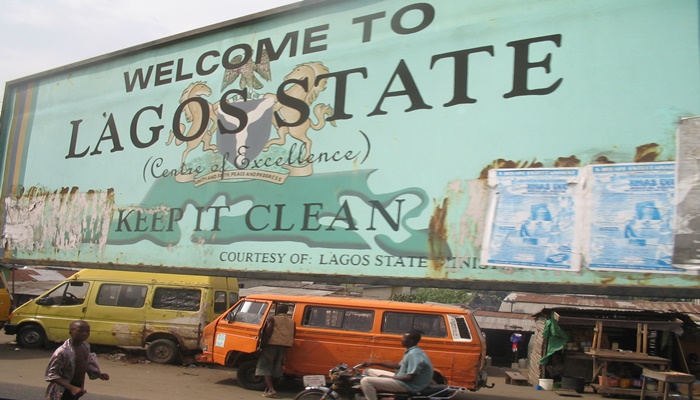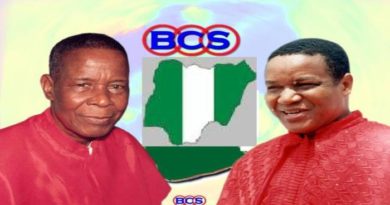Fitch affirms Lagos State at ‘B+’; Outlook Negative
Fitch Ratings has affirmed Lagos State’s Long-Term Foreign and Local Currency Issuer Default Ratings (IDRs) at ‘B+’ with Negative Outlook and Short-Term Foreign Currency IDR at ‘B’.
The National Long-Term Rating has been affirmed at ‘AA+(nga)’, with a Stable Outlook. The ratings on Lagos’ medium-term note (MTN) programme as well as senior unsecured bonds have also been affirmed at ‘B+’/AA+(nga)’.
The affirmation reflects the state’s weak socio-economic indicators by international standards. It also reflects Fitch’s expectations of resilient operating performance in the medium term, adequate transparency compared with national standards and satisfactory debt metrics.
According to the ratings agency, the Negative Outlook on the IDRs reflects that of Nigeria (B+/Negative).
Weak Institutional Framework is said to be the key rating driver for the state. A constitutional equalisation system enacted through the Federal Account Allocation Committee (FAAC) pools oil and non-oil revenue collected by the central government and transfers them to local and regional governments.
“FAAC’s funding has proved volatile given that Nigeria’s federal budget depends on oil for more than a third of its revenue and the severe oil price slowdown from 2012 has resulted in lower transfers to local government entities, especially in 2016.
“Given that the revenue framework is highly equalised and irrespective of the minimum level of service provided, incentives for operating spending efficiencies are limited. Economic development of states is dependent on capital projects, which often face challenging budget execution and are driven by available funding options.
“IGR Supporting Revenue Framework: Lagos benefits from a diversified revenue structure and, especially from strong internally generated revenues (IGR), which mitigates dependency on state statutory allocations from FAAC.
“Lagos’ IGR represents on average about 70% of the state revenue budget or about 40% of IGR collected in the country, which however includes a higher share of informal non-oil activities compared with the oil sector.
“Fitch expects Lagos’ medium-term operating margin to be in the 45%-50% range, supported by a growing revenue base especially from IGR which is, however, challenged by a large informal economy.
“This, in tandem with the administration’s commitment to keep cost growth under double-digit inflation, should mitigate the negative impact from potentially declining FAAC transfers, which represent about 10% of the state’s revenue.
“Enhancing Management Practice: Fitch expects political continuity following last elections to boost capex over the medium term up to an annual average of NGN450 billion over 2017-2019, mostly focused on transportation, water, health, education and social protection.
“Despite Nigeria’s weak governance indicators, as measured by the World Bank, the state is improving its governance and disclosure, and we expect new accrual accounting rules effective with 2016 financials to improve transparency and accountability.
“Growing Debt, Adequate Liquidity: Lagos’ debt will grow over the medium term up to over NGN1 trillion or over 150% of tax revenue, driven by a demanding capex programme and the negative effect of the Naira devaluation on foreign currency-denominated debt and a new USD200 million loan with the World Bank to finance new investments.
“Foreign currency debt repayment is assisted by irrevocable standing payment orders (ISPOs), through which the central government deducts from monthly transfers to service the states’ bonds, thereby transforming the ISPO from a back-up guarantee to a first-lien charge.
“Fitch expects long-term debt sustainability to remain compatible with Lagos’ rating profile, with a pay-back (debt-to-current balance) ratio of four years. Liquidity, averaging NGN100 billion over the medium term and equivalent to approximately 1x annual debt service requirements, does not represent a risk.
“Growth and Socio Economic Improvement; Despite its weak socio-economic indicators by international standards, Lagos is Nigeria’s economic powerhouse as its GDP accounts for 20%-25% of national GDP.
“Domestic production is fuelled by its diversified economy, with services, construction, transport and industry representing 80% of the local economy.
“Fitch believes that Lagos’ socio-economic indicators will further improve as we forecast local GDP growth to outperform national real GDP growth, at 4.5%-5.5% in 2017-2018.
“Rating Sensitivities: A downgrade of the sovereign’s ratings would lead to a corresponding action on Lagos’ IDRs. In the absence of a sovereign downgrade, an operating margin declining towards 30%, unfavourable changes in the national tax policy, debt rising beyond Fitch’s expectations over the medium term and economic instability, even at the local level, could lead to a downgrade.
“A sovereign upgrade may be reflected in Lagos’ ratings, provided that budgetary improvements reduce debt levels to 1x the budget size. Further improvement of the local economy giving additional boost to IGR would also be positive for the ratings”.




